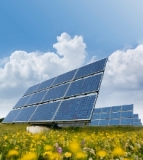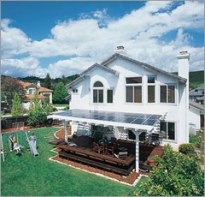|
The Cost Of Solar Panels Can Be Much Lower Than You Think!The cost of solar panels is affected by the amount of power you use each month, and the tax rebates from your state. You can further lower your cost by reducing your power use with a few simple steps. Even before you consider buying a home solar power system, you can dramatically reduce the amount of power you use by making a few simple, inexpensive changes around the home. 
The first thing to remember is that the less energy a house requires the smaller and less expensive the solar equipment will be. The more you can do up front to reduce your power consumption, the more you will save in the long run.
Here are some suggestions of those changes you can make right now:
Check out the outdoor solar lights. And that’s just the beginning.
Want To Save Up To 35% On Your Power Bills? Click Here!
There is also information on this page about how you can save 15% plus in your business or commercial application. Now once you have lowered your power bill by utilizing one or more of the above suggestions, you can evaluate your average power consumption and use our solar calculator to help determine the cost of your home solar power based on a number of factors including:
With the information above you can easily figure the size system you will need with the use of our solar calculator.
First enter your zip code to determine your geographic region, and then enter either the average kilowatt hours you use per year or your average power bill per month, and the percentage of power you want your system to generate. You can get your kilowatt usage per month from your power bill and figure your average for a year that way.
Once you run it you will have an assortment of valuable information calculated for you including the size of the system you should have, the square footage needed, tax rebates you are entitled to, savings per month and much more. Note that when this information is calculated, it INCLUDES the estimated cost of solar panels PLUS the installation. You can determine the actual cost to buy solar panels versus the installation costs by looking at the Solar System Capacity Required field. Use the KW of peak power required amount and match it to the Power-Save Solar Panel System, (link) that matches those requirements, from a 1k -10 k system. As an example: Solar System Capacity Required: 6.09 KW of Peak Power (DC Watts) Power-Save Solar 6000- 6 KW System would be required.
Once you have determined the cost of solar panels for your home, we will help you any way we can to be sure you have the correct home solar power system for your needs and the installer for your area.
|







